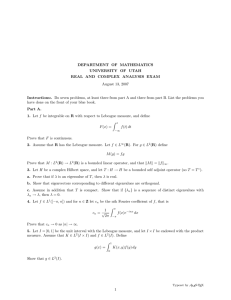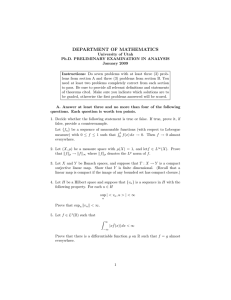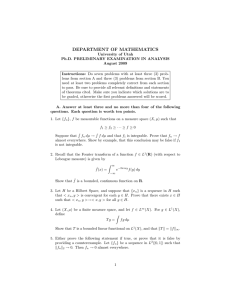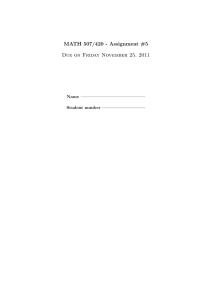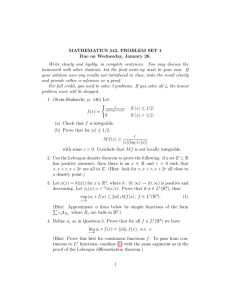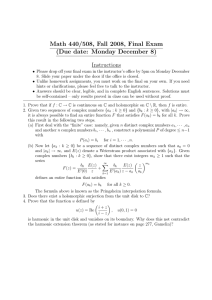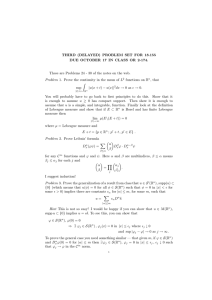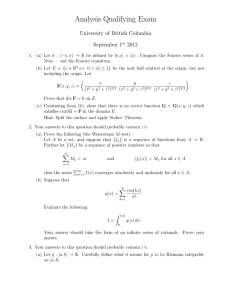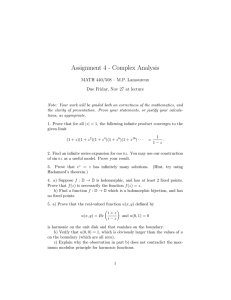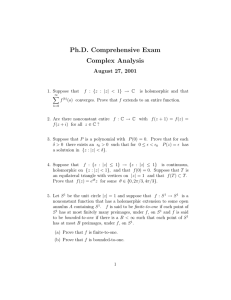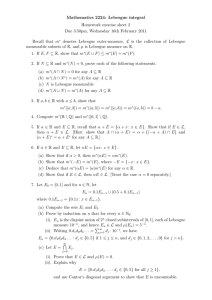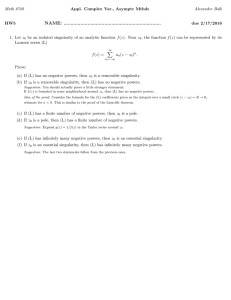DEPARTMENT OF MATHEMATICS
advertisement
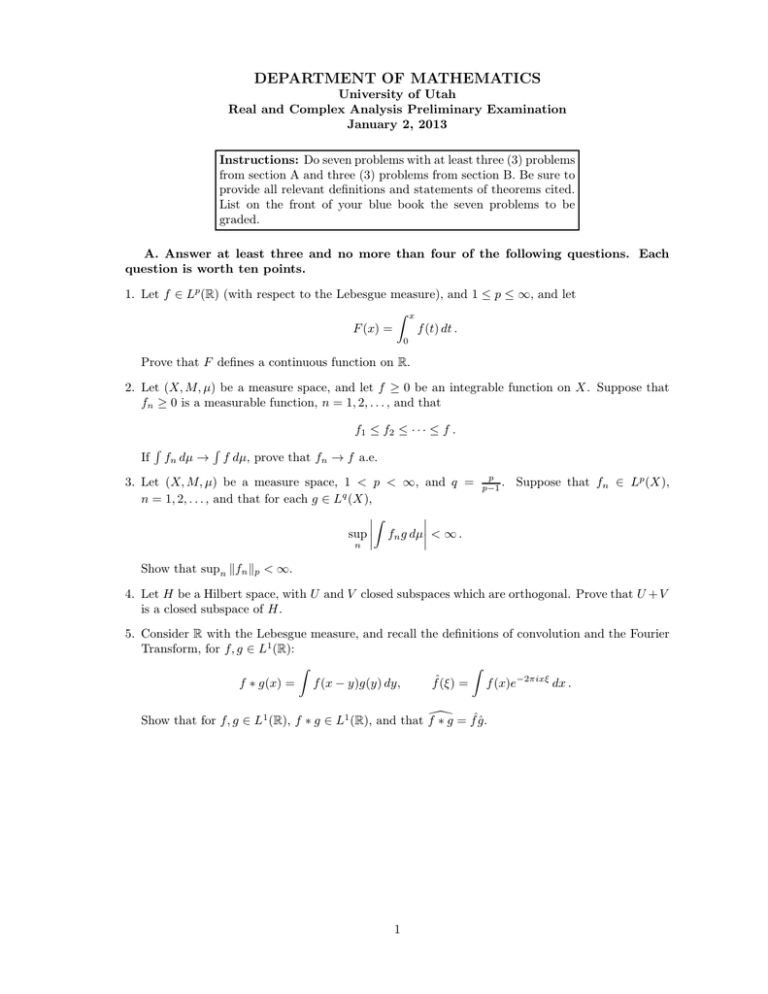
DEPARTMENT OF MATHEMATICS
University of Utah
Real and Complex Analysis Preliminary Examination
January 2, 2013
Instructions: Do seven problems with at least three (3) problems
from section A and three (3) problems from section B. Be sure to
provide all relevant definitions and statements of theorems cited.
List on the front of your blue book the seven problems to be
graded.
A. Answer at least three and no more than four of the following questions. Each
question is worth ten points.
1. Let f ∈ Lp (R) (with respect to the Lebesgue measure), and 1 ≤ p ≤ ∞, and let
Z x
f (t) dt .
F (x) =
0
Prove that F defines a continuous function on R.
2. Let (X, M, µ) be a measure space, and let f ≥ 0 be an integrable function on X. Suppose that
fn ≥ 0 is a measurable function, n = 1, 2, . . . , and that
f1 ≤ f2 ≤ · · · ≤ f .
If
R
fn dµ →
R
f dµ, prove that fn → f a.e.
3. Let (X, M, µ) be a measure space, 1 < p < ∞, and q =
n = 1, 2, . . . , and that for each g ∈ Lq (X),
Z
sup fn g dµ < ∞ .
p
p−1 .
Suppose that fn ∈ Lp (X),
n
Show that supn kfn kp < ∞.
4. Let H be a Hilbert space, with U and V closed subspaces which are orthogonal. Prove that U + V
is a closed subspace of H.
5. Consider R with the Lebesgue measure, and recall the definitions of convolution and the Fourier
Transform, for f, g ∈ L1 (R):
Z
Z
f ∗ g(x) = f (x − y)g(y) dy,
fˆ(ξ) = f (x)e−2πixξ dx .
Show that for f, g ∈ L1 (R), f ∗ g ∈ L1 (R), and that f[
∗ g = fˆĝ.
1
B. Answer at least three and no more than four of the following questions so that
the total number of questions you have answered is seven. Each question is worth ten
points.
1. Find the Taylor series of the function
f (z) =
z
2+z
at the point a = 1. What is the radius of convergence of that series?
2. Let f be a holomorphic function and a an isolated singularity of f . Prove that the following
statements are equivalent:
(a) there exists a disk D(a, ǫ) = {z ∈ C | |z − a| < ǫ} and a constant C > 0 such that
|f (z)| ≥
C
|z − a|n
for all z ∈ D(a, ǫ) − {a};
(b) f has a pole of order m ≥ n at a.
3. Find the Laurent series of the function
f (z) =
1
(z − z 2 )2
at z = 0.
(a) What kind of isolated singularity f has at 0?
(b) What is the residue of f at 0?
4. Evaluate the integral
Z
0
∞
x2 + 1
dx .
x4 + 1
5. Let f be a holomorphic function in a neigborhood of the closed unit disk centered at 0. Assume
that |f (z)| < 1 for any z on the unit circle centered at 0. How many fixed points f has inside this
unit circle?
2
